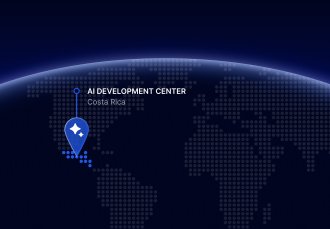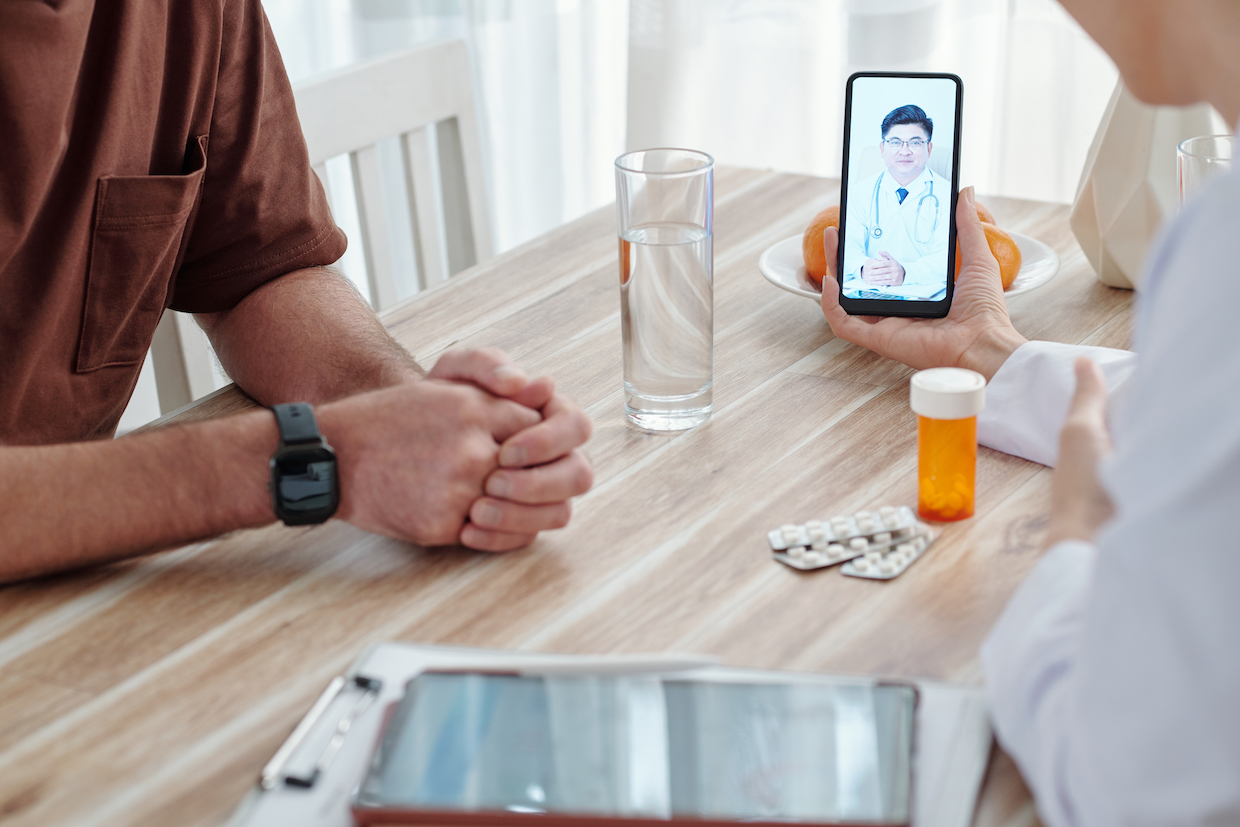
Contact us
Our team would love to hear from you.

Today, having a smartphone means that we not only stay in touch with the rest of the world, but may also expect personalized services, including medical, via various applications. In the year 2020, the market for mobile medical apps has reached US$4.2 billion. Medical mobile apps can respond to our needs and affect our well-being.
In this article, we will find out what medical apps are currently in demand and what technology trends they are based on.
Mobile solutions can produce positive results for both patients and healthcare professionals. Among the advantages of medical mobile apps are:

Modern technology in healthcare
As one of the best mobile app development companies in California, we pay attention to all market changes and keep abreast of latest trends. The majority of healthcare apps are developed with the use of trendy technologies that have recently hit the industry. Let us take a look at the trends that have proved themselves to be the most successful in medical app development over the past few years and try to figure out why they are likely to be longstanding.
The Internet of Things (IoT) technology is widely used in healthcare mobile application development. The basis of IoT is machine-to-machine communication via devices equipped with Wi-Fi. The Internet of Things can be used to create a health monitoring application helping doctors easily track patients’ vital signs. The IoT is applied in healthcare in the form of medical alert systems, implantable glucose monitoring systems, ingestible sensors, trackable inhalers, heart monitors, and more.
Mobile technology plays a great role in the Internet of Things development because the majority of IoT devices send data to an app on the smartphone. Today, there are more potential IoT applications because the majority of mobile devices have built-in Near Field Communication (NFC) and radio frequency identification (RFID) tags that allow devices to share data. In addition, RFID tags can be placed on various hospital equipment to keep staff updated on their inventory.
Machine learning (ML) has come across as a revolutionary way to cope with such tasks as text recognition and image recognition, medical data classification and analysis, forecasting, and many others. Hospitals now use tons of digital data-generating equipment. If these data are processed by a self-learning program, in the future they will be able to provide invaluable assistance in establishing more optimal diagnostic and treatment methods, monitoring patients’ conditions, and more.
Mobile applications generate datа for ML and provide an interface for interacting with the technology. For example, ML is capable of tracking patterns of human behavior and searching for deviations via computer vision cameras or via sensors in mobile devices.
The telemedicine technology has become an urgent need since the beginning of the COVID-19 pandemic. The rise of telemedicine app development has resulted in the emergence of contactless healthcare and the delivering of quality medical services through the telecommunications infrastructure. This technology helps patients with common health problems consult with doctors and get prescriptions by using video/audio conferencing and text chats. Remote patient monitoring significantly cuts the need for outpatient visits, potentially reducing the overall cost of care.
Wearable devices have become popular means of health monitoring of patients who need regular health checks as part of their treatment plan. Since in present-day realities patients cannot see a doctor anytime they need, wearable devices connected to smartphones help keep track of their health.
Today, when we talk about wearables, we mostly mean smartwatches, but there are other medical devices that have been in use in healthcare for a long time. The sad fact is medical wearable devices have been functional but not convenient enough for frequent use. Modern technology and materials have expanded the use of wearable devices making them lighter, smaller, less visible, and sometimes even inserting them into the skin.
Wearables with advanced biosensors are widely utilized in hospitals. Such devices are capable of measuring heart rate, steps, and calories. They can also measure hydration, electrolyte levels, blood pressure, do an electrocardiogram, determine muscle load, and the level of fatigue. This is an important advance because such wearables enable doctors and nurses to continuously track patients’ health without disturbing them. Wearable mobile apps allow visualizing data from medical wearable devices on larger screens and managing these devices in a more effective way.
The healthcare industry is witnessing fast growth. Medical services are becoming more available, and patients can access quality treatment anytime and anywhere. Above, we have mentioned only a few healthcare mobile app development trends. Obviously, new technologies will continue to appear, and the healthcare industry will definitely be among the first to adopt them.
Need a custom healthcare application development provider? EffectiveSoft is here to help you translate your ideas into an advanced solution.
Our team would love to hear from you.
Fill out the form, and we’ve got you covered.
What happens next?
San Diego, California
4445 Eastgate Mall, Suite 200
92121, 1-800-288-9659
San Francisco, California
50 California St #1500
94111, 1-800-288-9659
Pittsburgh, Pennsylvania
One Oxford Centre, 500 Grant St Suite 2900
15219, 1-800-288-9659
Durham, North Carolina
RTP Meridian, 2530 Meridian Pkwy Suite 300
27713, 1-800-288-9659
San Jose, Costa Rica
C. 118B, Trejos Montealegre
10203, 1-800-288-9659